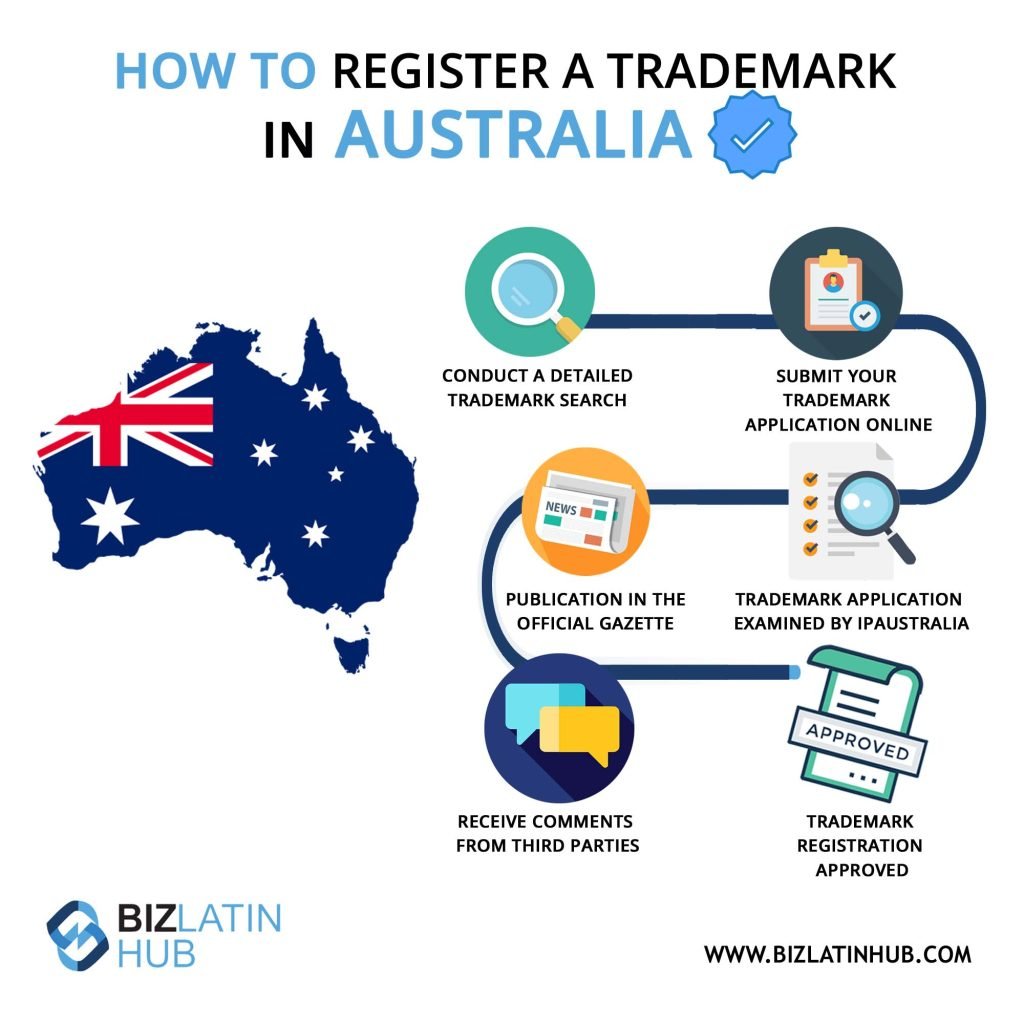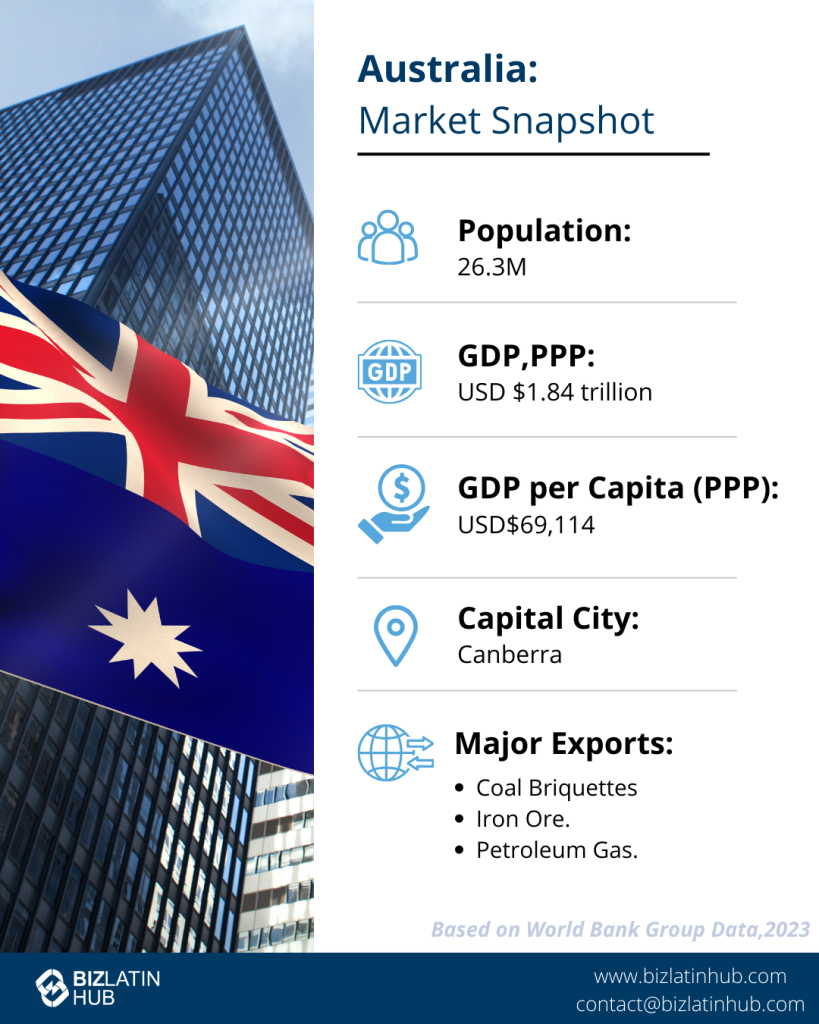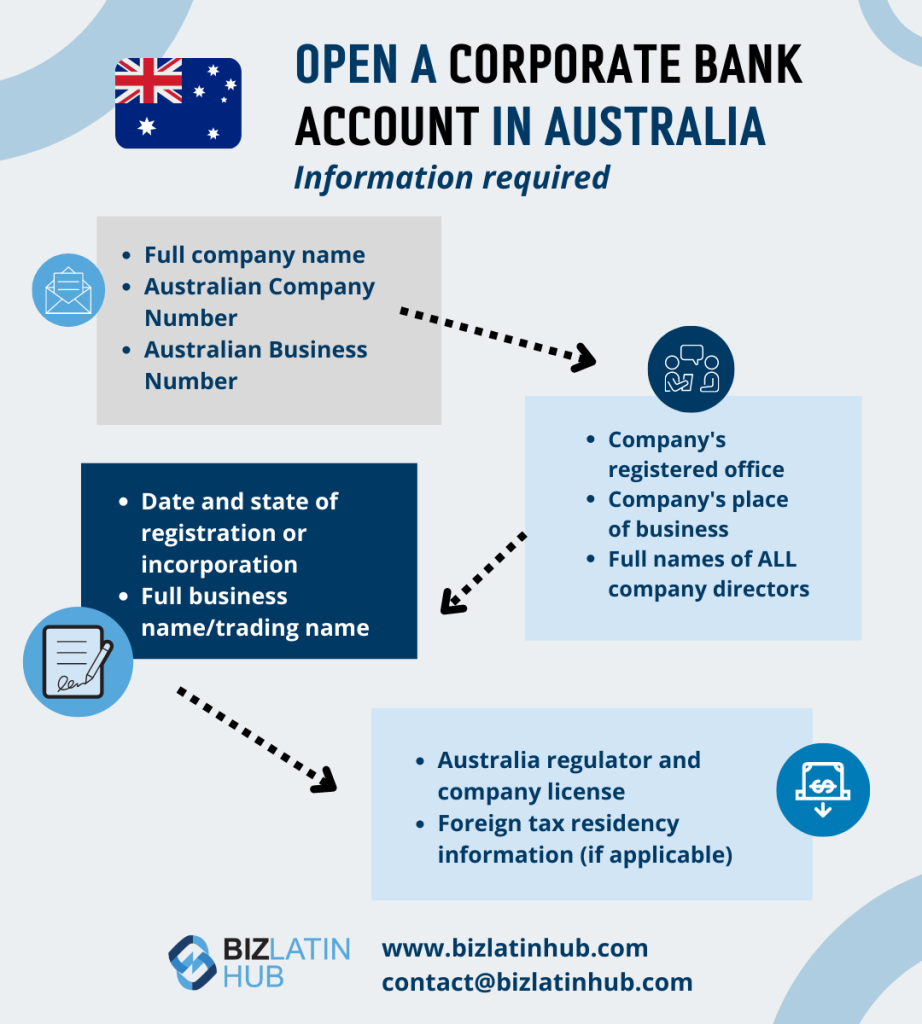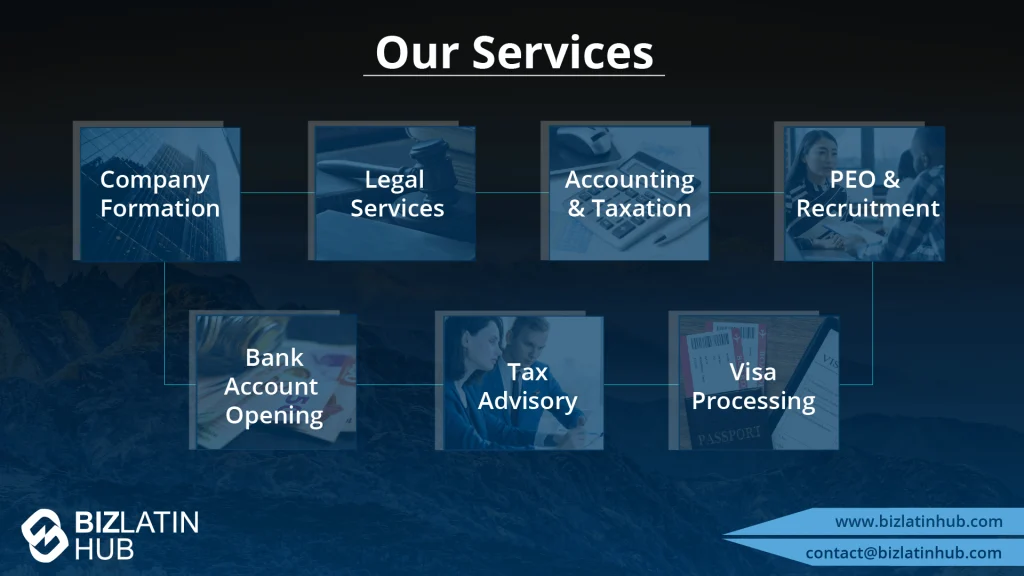Oceania is a highly developed market economy to which technology businesses in Australia contribute greatly. The economy’s success is driven by the ability of local businesses to improve and innovate technologically, discover new markets, and build new products.
We explore several key trends emerging from technology businesses in Australia, and how these trends may influence the future of the local tech scene. The country values and treasures innovation and entrepreneurship, meaning there are always new developments.
Biz Latin Hub can help technology businesses in Australia invest in company formation throughout Latin America and the Caribbean, as well as help Latin businesses explore options in Oceania. Our array of market leading back-office services can help you stay compliant with all local laws and focus on growing your business.

Major technology businesses trends for Australia in 2020
1. Blockchain
Blockchain is used in many industries and to almost every value transaction. Blockchain is a digital platform that allows recording, verifying and storing transactions shared across a computer network based on pre-agreed rules. This process does not need the authority’s verification but keeps the transactions secure. Blockchain technology is mostly used in financial, bank, governmental sectors in Australia.
Australia is home to a number of world-first blockchain applications. Combining blockchain technology with other technologies can add economic value to a range of business sectors. Australia could contribute to an estimated global annual business value of over USD$175 billion by 2025 generated by blockchain.
Some examples of businesses who are already applying the blockchain technology in doing business are:
- Trusted credentials in the university sector
- Agricultural supply chains in the wine sector
- Transferable customer checks in the finance sector.
The Australian government unveiled plans in 2020 to ramp up innovation through blockchain technology with a national roadmap. The new strategy is focused on the potential value generated via business-related blockchain activity, with a focus on supporting global supply chain management systems and tracking.

2. Internet of Things (IoT)
Cheaper and better quality sensors (For example motion sensors, temperature sensors) and increased computing power facilitated an increase in the uptake of IoT technology in Australia. The next generation of Internet of Things platforms will integrate innovative and traditional data sources, correlate multiple inputs and provide real-time analysis. There are many examples of the growing utilization of IoT across industries in Australia:
- Australian medical authorities use smart healthcare devices to monitor patients and alert them about issues.
- Universities are implementing smart campuses in order to collect data to monitor study patterns, how spaces are used, course attendance and student interactions. This data is leveraged to optimize resources and improve the student experience.
- Soil sensors help farmers to measure moisture levels and manage water use to improve their harvest.
- Energy and water infrastructure are utilizing sensors to better track and handle the maintenance.
3. Artificial Intelligence (AI)
Artificial Intelligence makes use of various technologies meant to perform without explicit human guidance. This includes machine learning, automation, computer vision, optimization and decision support. Some examples of AI in Australia are:
- Being able to translate human spoken language into a set of instructions (Siri, Google Assistant)
- Computer vision and object tracking from video (driverless cars)
- Control of robotics in manufacturing
- Chatbots
- Deep analysis of large datasets to find patterns and relationships (predicting the stock market).
According to Gartner, a world-leading research and advisory company, the adoption of AI technologies is at 40% in Australia compared to 41% worldwide. It is forecasted that AI will add trillions of dollars to the global economy in the upcoming decades.
4. Quantum computing
Australia is recognized as a world leader in silicon-based quantum computing research. This is one of the most promising technologies to create a commercially viable quantum computer.
Quantum computing takes advantage of the strange ability of subatomic particles to exist in more than one state at any time. Due to the way the tiniest of particles behave, operations can be done much more quickly and use less energy than classical computers.
In classical computing, a bit is a single piece of information that can exist in two states – 1 or 0. Quantum computing uses quantum bits, or ‘qubits’ instead. These are quantum systems with two states. However, unlike a usual bit, they can store much more information than just 1 or 0, because they can exist in any superposition of these values.
As a part of the National Innovation and Science Agenda, the Australian government invested AU$25 million in 2017 in the Silicon Quantum Computing Pty Ltd company’s quantum computing venture. The company’s vision is to improve quantum computing experience “by creating technology at the cutting edge of science, and by using it in ways that are life-enhancing, human-centred and world-changing.”
Business success relies on a highly-skilled workforce in future-focused industries

Demand for the future workforce is still hard to forecast. However, one thing is sure: technology has a great impact on the way businesses in Australia operate as well as the demand for skilled employees. Up until now, the priority is given to the combination of transferable digital knowledge, communication skills, and problem-solving.
The Australian government announced in 2019 that only migrants working in seven future-focused fields will be eligible for permanent residency under the Global Talent Independent Program (GTIP). These future-focused fields are:
- Agriculture technology (AgTech)
- Energy and mining technology
- MedTech
- FinTech
- Cybersecurity
- Space and advanced manufacturing
- Information and communication technology (ICT: data science, advanced digital and quantum information).
This move aims to attract more skilled or specialist workers in key areas of technological innovation to Australia, which is great news for innovative Australian employers.
SMEs are yet to embrace and adopt digital technologies
The business capability of digitalization raises revenue, enforces competitiveness, embraces product innovations and creates new job opportunities. The adoption level of digital technologies by SMEs remains low due to some barriers, for instance :
- Lack of awareness regarding the benefits
- Low digital skills
- Lack of resources and time to research and try new technologies
- Concerns about costs.
To assist small companies in digital engagement, the Australian government has launched the Small Business Digital Champions initiative. The main steps to improve adopting digital technologies are:
- Upgrade to modern cloud-based solutions
- Adopt emerging technologies as they evolve
- Use web channels to extend business opportunities
- Develop in-house digital expertise.
Bring your technology business to the Australian market
Australia is a low risk, stable country that enjoys a business-friendly environment that has strategically developed industries. Consequently, the country has built a strong economy for the future, with one of the world’s largest e-commerce markets, wide-ranging research and development projects, and impressive technology and digital sectors.
Gain access to this exciting, forward-thinking country. Biz Latin Hub specializes in assisting market entry to foreign in-coming businesses, providing a range of legal and financial services to aid in the incorporation of your business. If you are thinking of starting a business in Australia do not hesitate to contact us today.
Learn more about our team and expert authors.






